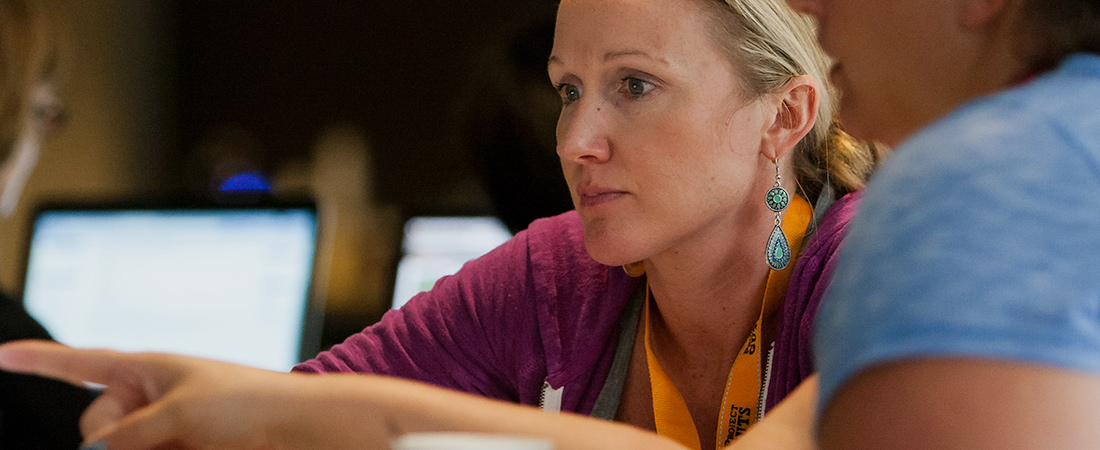
In the United States, EDC’s teacher professional development programs help educators improve their craft.
EDC develops practitioner-informed professional development and resources that build professional and organizational capacities. We engage educators, health providers, and community agency staff in communities of practice that reflect current findings on effective strategies to support adult learning and systems improvements.
We develop and deliver training and technical assistance to frontline staff in classrooms, clinics, and communities that support their use of evidence-based practices to enhance services. We also build policymakers’ capacity to collect, analyze, and use data to guide decision-making.
Learn about EDC’s work to strengthen early childhood interventions with Continuous Quality Improvement.
Related Content
A Second Chance at School in Mali
In Mali, accelerated education is helping thousands of children get back to school.
Helping All Children Learn and Thrive
EDC’s David Jacobson discusses his ideas for changing—and improving—early childhood services.
Addressing the Opioid Crisis through Home Visiting
Home visiting programs are critical to supporting children affected by opioid misuse, says Loraine Lucinski.
Crisis, Conflict, and Resilience
In times of crisis or conflict, some communities struggle while others pull together. It’s all about resilience.
Accelerating Education in Liberia
An estimated 300,000 Liberian children do not attend school. What’s being done to provide more access to education?
3 Ways Schools Can Support Children Affected by the Opioid Crisis
Schools are uniquely positioned to address the needs of children exposed to trauma, says Shai Fuxman.
Projects
Resources
Here are a few of our resources on capacity building for individuals, organizations, and systems. To see more, visit our Resources section.
This report outlines the need to work together with new and unlikely allies, other than education actors alone, to reimagine how our interconnected systems—health, education, economic development, and the protection of our planet—can work toward Sustainable Development Goal 4: Quality Education and beyond.
This final report summarizes the evaluation of the impact of EDC’s Early Childhood Caregiver Professional Development and Certification Program in Rwanda.
This infographic spotlights the researchers’ theory of change and illuminates conditions at the teacher, classroom, and school/system levels that are key to effective teacher professional development.
This brief describes how EDC works with multi-sector partners to pioneer new ways to harness the power of digital tools to support families and enhance early teaching, learning, and health promotion.
This study examines how public school principals allocate their time to various job-related tasks and investigates the types of professional development they attend.
EDC’s Work Ready Now (WRN) delivers effective work readiness preparation to youth around the world. Based on international standards, WRN helps young people in emerging economies develop the soft skills and work readiness skills needed to succeed in earning a living.
This study examined the impact of an orientation on course completion rates for high school students taking a supplemental online course for the first time.
Addressing Corruption in Education: A Toolkit for Youth from Youth was developed in the framework of the United States Agency for International Development (USAID) funded Europe & Eurasia Social Legacy Program (E&E SLP).
What does it mean to be data literate in the world of “big data”? What should we teach students to better prepare them to participate in our workforce and society? This report answers these questions and shares takeaways from a three-day workshop led by EDC and IBM, "Building Global Interest in Data Literacy: A Dialogue."
Using data collected in Massachusetts, this study examines the relationships between schoolwide instructional observation scores and schoolwide student academic achievement and growth in state-desi